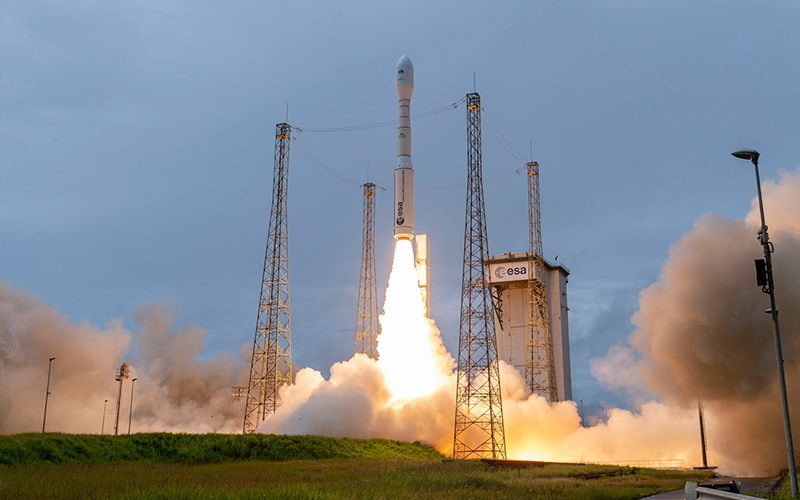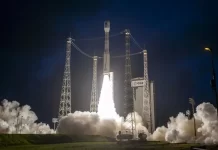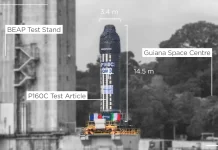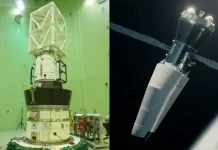
European Space Agency member states have agreed on the details of how customers already booked to be launched aboard Vega C flights will be managed after Avio splits from Arianespace.
On 6 November 2023, during the ESA Council meeting in Seville, the agency’s member states adopted a resolution that would enable Italian rocker builder Avio to market and manage the launch of Vega C missions independently of Arianespace. To conclude Avio’s split from Arianespace, the pair began negotiations to determine how the over a dozen Vega C flights currently contracted through Arianespace would be managed.
During a media briefing following ESA’s 327th council meeting in late June, Director General Josef Aschbacher revealed that the pair had reached an impasse and one of the two companies had asked the agency to step in and mediate the negotiations. This process has borne fruit, with ESA announcing on 5 July that an agreement had been reached and a resolution outlining the particulars of that agreement adopted by the agency’s member states.
Under the terms of the resolution, Arianespace will remain the launch service provider for the final Vega flight scheduled for later this year, and all Vega C flights up to and including flight VV29, which is currently expected to occur in the fourth quarter of 2025. Following that, all customers who have contracted Vega C flights through Arianespace will be offered the opportunity to transfer their contracts to Avio as the new launch service provider for their missions. This does, at least in theory, appear to offer customers of missions VV30 onwards a chance to reassess their selection of Vega C for the launch of their respective payloads.
When asked if the agreement would allow customers to shop around instead of transferring their contracts to Avio, ESA’s head of strategy and institutional launches, Lucia Linares, gave a diplomatic nonanswer.
“Arianespace will request agreement for the transfer of those launch service contracts to the clients, which are European institutional customers,” Linares told European Spaceflight. “ESA will respond positively for its own missions.”
While in the past, European institutions could be counted on to choose to launch aboard European launch vehicles, EUMETSAT’s recent decision to ditch Ariane 6 in favour of a SpaceX Falcon 9 has challenged that tradition. With Vega C currently grounded after a late 2022 launch failure and a June 2023 recertification test failure, it would not be surprising if customers felt empowered to examine alternatives.




